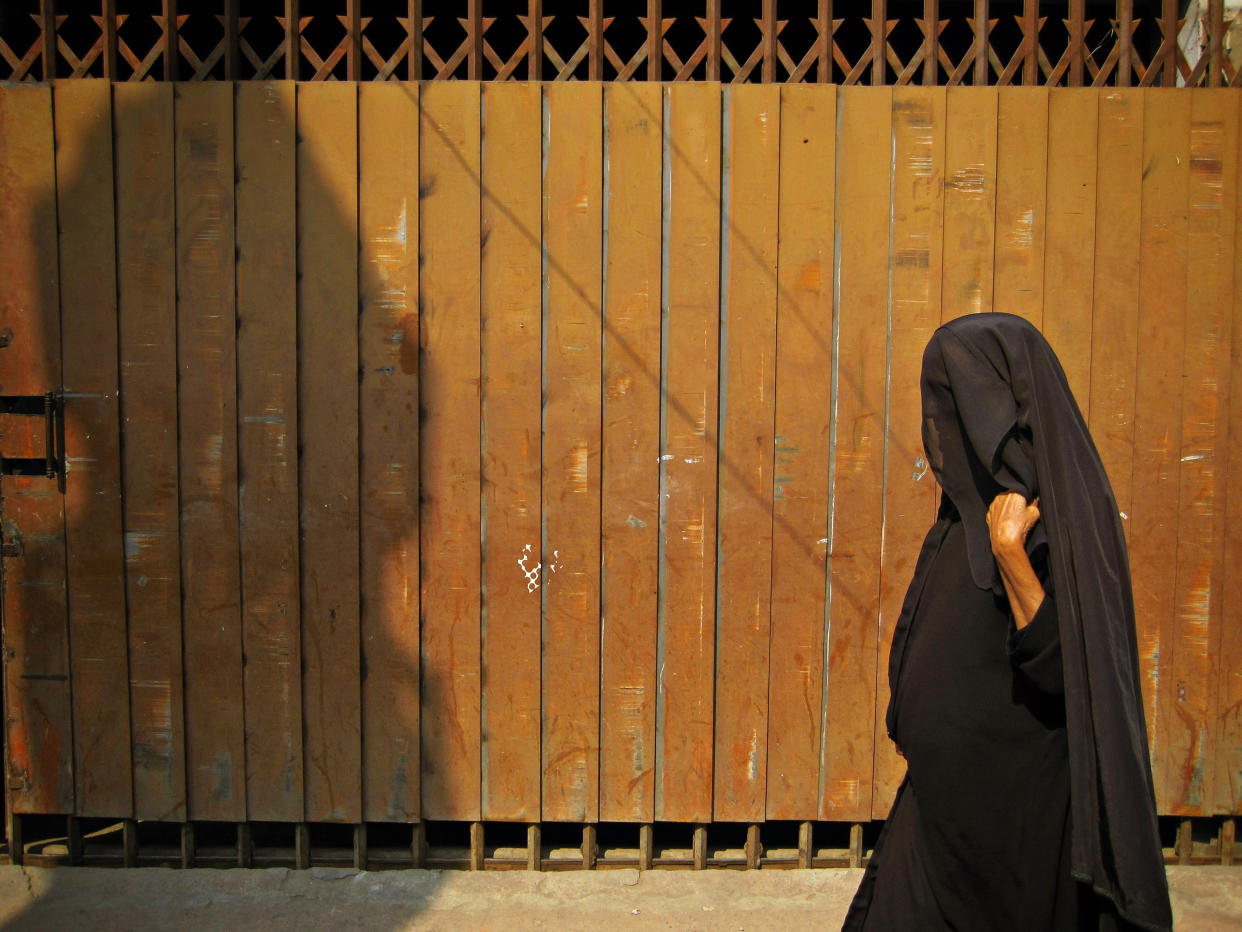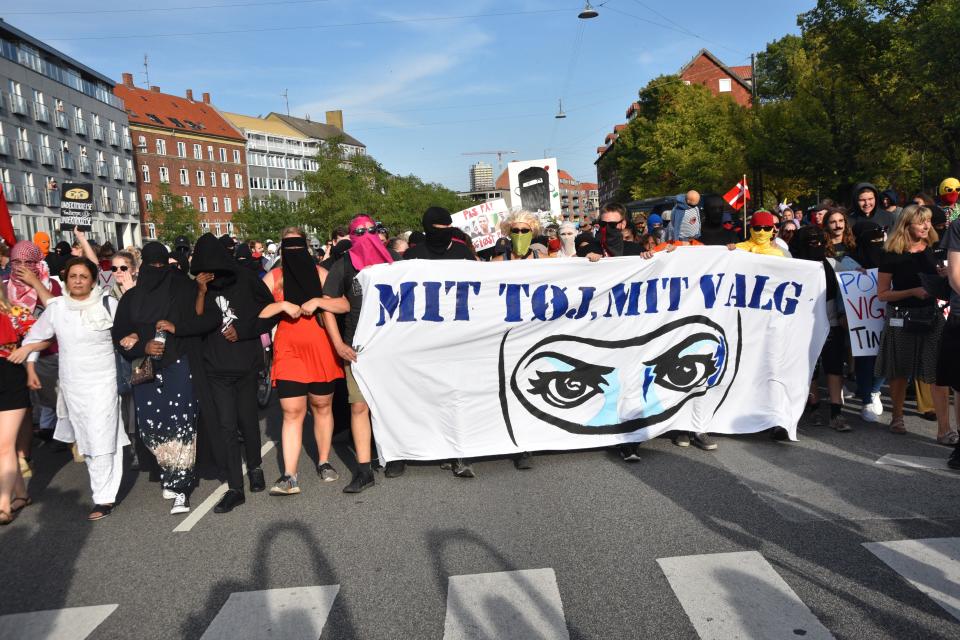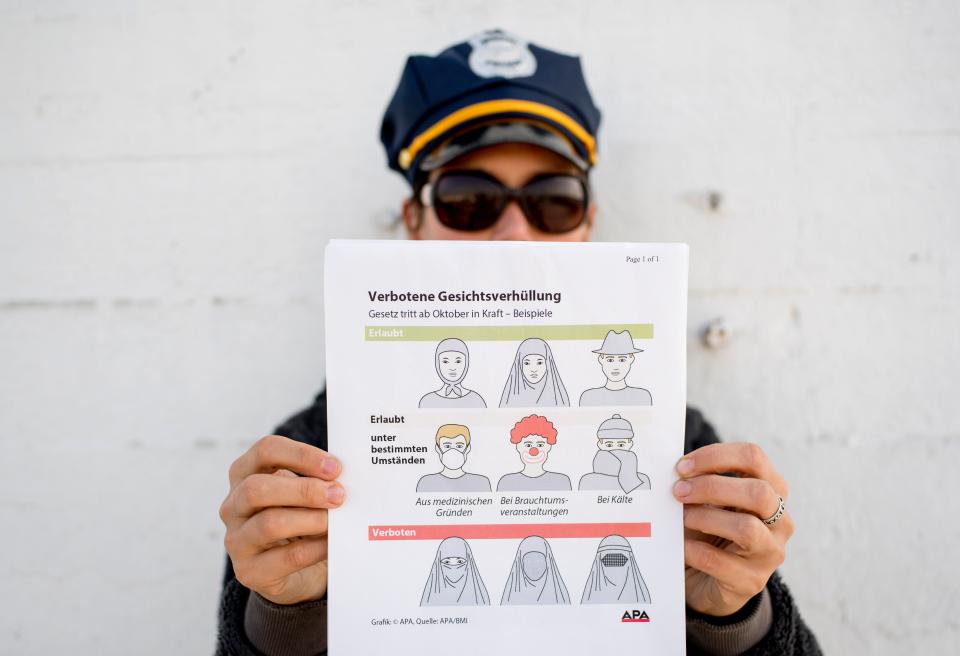These are the European countries that have banned the burka

A number of countries in Europe have introduced bans on garments that partially or completely cover the face.
Often dubbed ‘burka bans’, the measures outlaw the wearing of Muslim face coverings, including niqabs, which veil the face but leaves the areas around the eyes clear, and burkas, which cover the entire body and face, often with a mesh screen to look through.
These are the countries that have the bans.
Denmark
Denmark announced a full ban on niqabs and burkas in May this year, with the law coming into force on 1 August. One woman wearing a face covering in a shopping centre was fined £120 in August, after another woman tried to tear it off.
Hundreds of Danes protested the introduction of the ban, accusing the government of taking away women’s right to dress as they pleased.

France
France banned the wearing of face-covering veils in all public places in 2010, the first European country to do so. The President at the time Nicolas Sarkozy said that the clothing was ‘not welcome’ in the country.
Breaking the ban can result in a £135 fine, while anyone who forces another person to wear a face covering can be fined £27,000 and sentenced to a year in prison.
The country has also banned most religious symbols including hijabs, which do not cover the face, in public schools.
Germany
In Germany it is illegal for soldiers and state workers to wear garments that cover the face. After this ban was imposed a similar law preventing car and truck drivers was approved in 2017.
The introduction of the law was criticised by Germany’s left-wing Die Linke and Die Grünen parties, who called the move a ‘purely symbolic policy’ designed to win over right-wing and anti-immigration voters.
In Germany’s Lower Saxony region, niqabs and burkas are banned in private schools.
Austria

Clothing that covers the face has been banned in public spaces in Austria since 2017, and fines of £150 can be imposed as punishment.
Police in the country have criticised the law, admitting it has mainly resulted in warnings being issued against people wearing smog masks and animal costumes.
Belgium
Belgium has outlawed the wearing of any clothing that obscures the identity of the wearer in public places.
The European Court of Human Rights ruled that the law does not breach human rights, after it was challenged by two Muslim women.
Bulgaria
Clothing that partially or completely covers the face is banned in public places including government offices, educational institutions, and places of public recreation is banned in Bulgaria, with fines of up to £688 for those breaking the ban.
Women who breach the ban can also have their state benefits cut.
Amnesty International UK condemned the ban, saying it was ‘part of a disturbing trend of intolerance, xenophobia and racism in Bulgaria’.
The Netherlands
This year The Netherlands banned face-coverings in public places, including schools, hospitals and on public transport.
The ban does not apply in public streets, but police have the power to ask people to remove face coverings in order to identify them.

 Yahoo News
Yahoo News 

